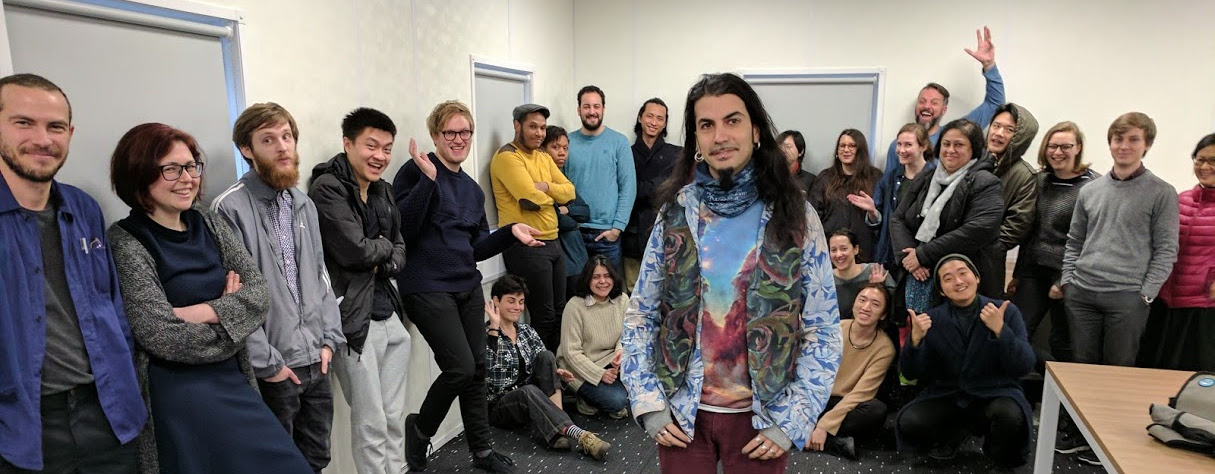
Blogpost by Theo Papatheodorou, programme leader of MA/MFA in Computational Arts.
MA/MFA in Computational Arts students got a real treat on 23 January when renowned computational artist Memo Akten visited the MA to run a crit session and discuss his work and process.
When Memo first came in, he discussed his role in the openFrameworks community. The students in the Workshops in Creative Coding class on the MA are using openFrameworks to make interactive audiovisual applications using computer vision, machine learning, networking protocols, sensors and a lot more. Memo’s contribution to openFrameworks is great and it was really enjoyable listening him talk about his involvement.
We then went through 15 of the best end-of-term project assignments and Memo gave feedback, ideas and critiqued the work for the benefit of the students.
The highlight of the session came later when Memo gave a talk about his work. It wasn’t a typical talk listing his contributions and achievements (among other things the Golden Nica at Ars Electronica). He hopped between selected projects highlighting a common thread: how ideas are formed, how he picks tools, collaborators and how he (occasionally) pitches ideas to clients.
Some nuggets of wisdom from his talk:
- On learning new technologies: Give yourself a project and a deadline. Working with tight deadlines enhances the creative process, increases the motivation and facilitates learning.
- On forming new ideas: He often hacks away on a small thing late at night. This small thing might be just an experiment, a proof-of-concept or a study of a topic that fascinates him. For example, he started investigating and playing with the theme of harmonic motion. The work that started as a humble Processing sketch became an audiovisual installation, a 360-immersive projection, a live performance using 16 percussionists and ultimately a light show outside the Blenheim Palace. See the video below for its manifestation outside the palace.
- On pitching ideas: Keep a (somewhat) organised file with your ideas. If you do develop something, blog about it, make a how-to video, share your code and your idea with the world. When you’re approached for a commission look over the stack of ideas and scale one up for a project. Don’t get too attached to your ideas. Be ready to throw away one that is not so fresh any more.
Memo is currently completing his PhD in A.I. and machine learning for expressive human-machine interaction at Goldsmiths.
This post was originally published on Goldsmiths’ Computational Arts blog.






